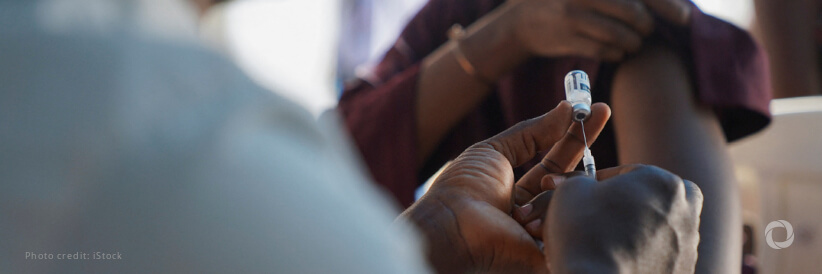African countries are set to receive just one-tenth of the vaccines they need to control the mpox outbreak by the end of 2024, analysis from the People’s Medicines Alliance has found, while rich countries hold nearly all of the global supplies. As the outbreak spreads across Africa, high prices are keeping vaccines and tests out of reach for the people most at risk.
Africa needs approximately 10 million vaccine doses to control the outbreak, according to the Africa Centers for Disease Control and Prevention, but only around 1 million have been delivered. An estimated 210 million vials of vaccine have been produced to date, but more than 99 per cent are thought to be sat in rich country stockpiles.
The cost of the key mpox vaccine called MVA-BN, produced by Bavarian Nordic, has raised serious concerns about accessibility. UNICEF recently negotiated a price of up to $65 per dose from Bavarian Nordic, which is almost 2.5 times more expensive than most other vaccines in its portfolio.
Vaccines made with similar technology can be produced for just $5 per dose by developing country manufacturers. Global health advocates are calling for the immediate redistribution of stockpiled vaccines to regions in urgent need, to spark ambition in the global response.
Mohga Kamal-Yanni, Policy co-lead for the People’s Medicines Alliance, said: “The mpox crisis is in Africa but the stockpiled doses are miles away in rich countries. So far, prices have been far too expensive and will quickly exhaust the funds of international agencies like Gavi. More are expected, especially for children, but with less than a week left of the year, only a fraction of the vaccines promised to Africa have arrived.”
In November, the World Health Organization (WHO) approved the LC16 vaccine, produced by Japanese company KM Biologics, as the only vaccine authorized for children. This is particularly important given that children under the age of 5 continue to be the main group dying from mpox. Although Japan announced a donation of 3 million doses with their specific syringes, the first supplies are only now starting to arrive in the DRC, while discussions are still ongoing about supplying other African countries affected by the crisis.
Amidst vaccine scarcity and high prices, several countries and health authorities are being forced to pursue conservative vaccination plans that do not measure up to what is actually needed. With bolder commitments by rich countries to provide more vaccines, African countries could undertake more ambitious mpox strategies and responses.
The majority of mpox cases and deaths are occurring in the DRC. However, countries are being hampered in detecting and confirming infections because they lack the means to adequately diagnose them. Producers are charging around $20 per individual mpox test — this is nearly equivalent to the DRC’s total annual healthcare budget per person.
Dr Samuel Mangala, Oxfam Field Coordinator in Equator province, said: “The situation here in the DRC is unfathomable. Every day, we are seeing children die. In my area, we have not yet seen a vaccine. We can only ask why are vaccines being hoarded elsewhere when the virus is here, killing people here, killing children here?”
Advocates argue that the price of these tests should be cut to $5 which would still allow the company to profit. Diagnostics should also be made far more accessible. The DRC’s capacity to diagnose cases is so restricted that only 20 mpox cases have been confirmed by laboratory tests.
Peter Maybarduk, Access to Medicines Director at Public Citizen, said: “Once again, people’s health is put at risk by pharmaceutical companies with power to decide who gets what product, when and at what price.
“If we make vaccines affordable and widely available, countries will be able to pursue more aggressive strategies to stamp out pandemic threats. Health agencies will be able to plan with ambition. Protecting public health requires stopping outbreaks at their source and putting health before profit.”
Currently, governments are negotiating a Pandemic Agreement with the WHO to ensure effective preparedness, prevention, and response to future health crises. However, high-income countries are opposing legally binding measures that are the basis for equity, including equitable product sharing, technology transfer, fair sharing of benefits arising from sharing pathogens, and removing IP barriers. This has thrown negotiations into a deadlock.
Without such measures, the mpox outbreak may become yet another example of avoidable tragedy in global health.

